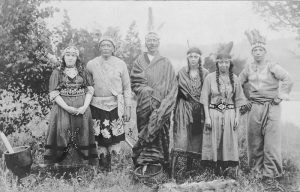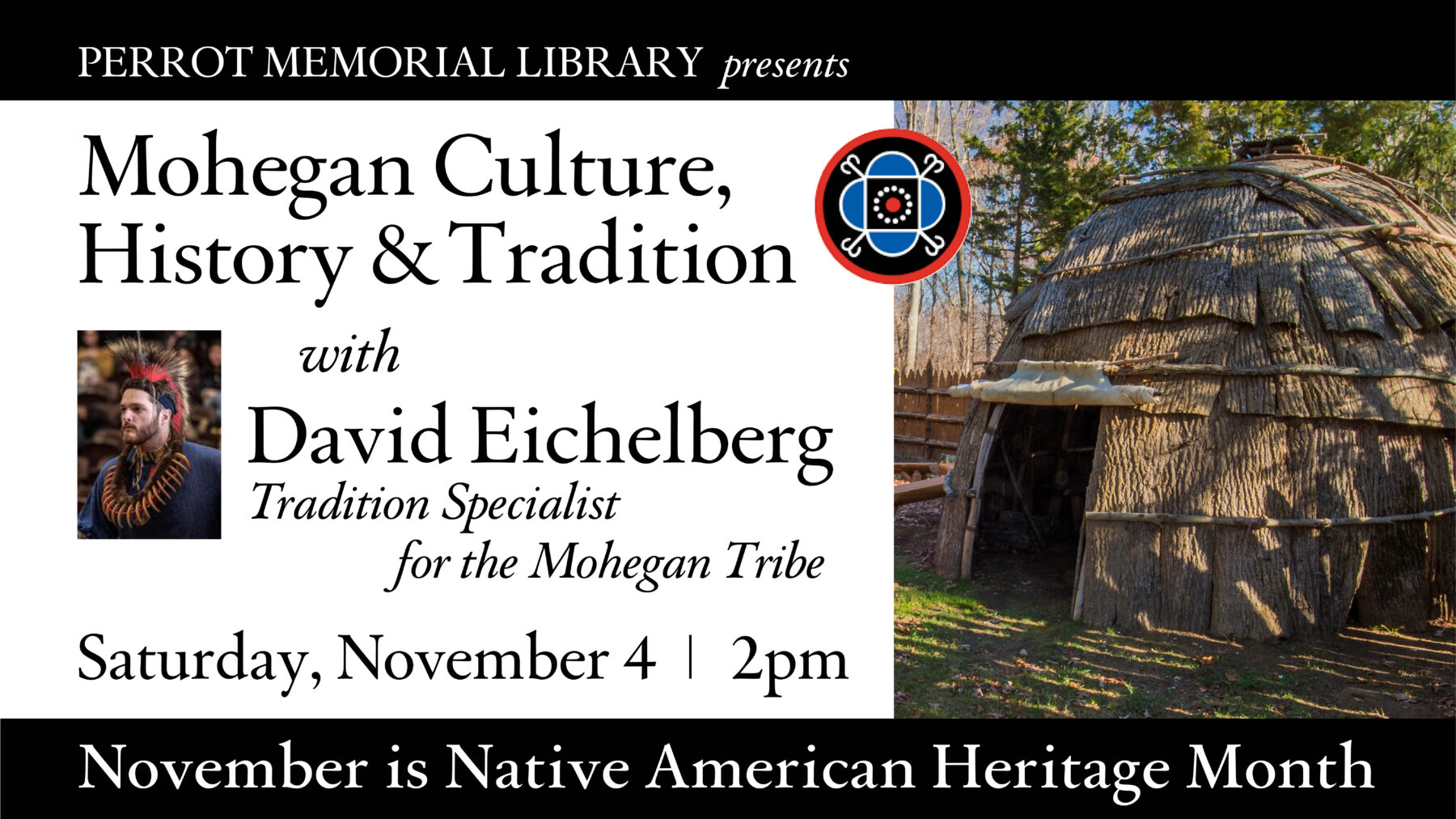
From Wolves to Riches: The Enduring Saga of the Mohegan Tribe
By [Your Name/Journalist’s Name]
On the banks of the Thames River in southeastern Connecticut, where the salty tang of the Long Island Sound mingles with the freshwater currents, stands a testament to resilience, adaptability, and unwavering spirit. This is the ancestral homeland of the Mohegan Tribe, a people whose history is as deeply rooted in this landscape as the ancient oak trees that dot their sovereign territory. From fierce warriors navigating the treacherous tides of colonial expansion to modern-day economic powerhouses, the Mohegan story is a compelling narrative of survival, resurgence, and the enduring power of identity.

For centuries, long before European sails dotted the horizon, the Mohegan people thrived in this verdant region, their lives interwoven with the rhythms of the land and sea. They were – and remain – the "People of the Wolf," their name derived from "Ma’iingan," the Algonquian word for wolf, symbolizing their strength, loyalty, and deep connection to their territory. Originally part of the larger Pequot nation, the Mohegan, under the leadership of the legendary Sachem Uncas, strategically separated in the early 17th century. This decision, born of internal tribal dynamics and a keen understanding of the shifting geopolitical landscape, would prove pivotal to their survival.
Uncas: A Strategic Mastermind
Uncas, a figure often misunderstood by colonial historians, was a tactical genius and a shrewd diplomat. He recognized the burgeoning power of the English colonists and, rather than engaging in outright conflict, forged an alliance that would define the Mohegan’s destiny. This alliance became critically important during the brutal Pequot War of 1637. While the war resulted in the near annihilation of the Pequot people at the infamous Mystic Massacre, the Mohegan, fighting alongside the English, not only survived but emerged as a dominant Native American power in the region.
"Uncas was a visionary leader who understood the delicate balance of power in a rapidly changing world," notes a tribal elder, reflecting on the profound impact of their ancestor. "He made difficult choices, but those choices ensured our people’s continuation when so many others perished."
Following the war, the Mohegan’s territory expanded, and they maintained a complex, often fraught, relationship with the colonial authorities. They navigated land encroachments, cultural pressures, and the constant threat of assimilation. Despite these challenges, the Mohegan held onto their distinct identity, their oral traditions, and their spiritual connection to the land.
The Long Road of Survival and Silence
The 18th century brought new challenges but also produced another towering figure: Samson Occom. Born in Mohegan territory in 1723, Occom became a prominent Presbyterian minister, a prolific writer, and a tireless advocate for Native American education. He traveled to England to raise funds for a school intended for Native American youth, which would eventually become Dartmouth College. Occom’s life, however, also highlighted the paradoxes of colonial benevolence; he eventually grew disillusioned with the institution he helped found, feeling that it neglected its original mission to educate Native Americans. His story is a poignant example of the Mohegan’s enduring commitment to education and self-improvement, even as they faced systemic discrimination.
As the centuries progressed, the Mohegan, like many other Indigenous nations, faced increasing pressure to assimilate. Their lands dwindled through various treaties, sales, and often deceptive practices. By the late 19th and early 20th centuries, many outsiders believed the Mohegan Tribe had "vanished," absorbed into the broader American population. This period, often referred to as the "silent survival," saw the Mohegan maintain their community and cultural practices discreetly, beneath the radar of official recognition. They continued to live in their ancestral homelands, maintaining strong family ties and passing down their traditions through generations, ensuring the "People of the Wolf" never truly disappeared.

The Reawakening: The Fight for Federal Recognition
The mid-20th century marked a profound reawakening for the Mohegan. Inspired by the broader Native American civil rights movement, the tribe embarked on an arduous, decades-long journey to reclaim their rightful place in the national consciousness: federal recognition. This was not a simple bureaucratic process; it required meticulous documentation, oral histories, and legal battles to prove continuous tribal existence and political self-governance since historical times.
The fight was led by strong tribal leaders, many of them women, who dedicated their lives to restoring the tribe’s sovereign status. "It was about proving what we already knew in our hearts," a tribal historian explains. "That we were, and always have been, a distinct, self-governing people."
Finally, after an exhaustive process, the Mohegan Tribe achieved federal recognition on March 15, 1994. This moment was more than just a formality; it was a profound affirmation of their inherent sovereignty, paving the way for self-determination, the ability to negotiate nation-to-nation with the federal and state governments, and crucially, the opportunity for economic development.
Mohegan Sun: A Beacon of Self-Determination
The immediate and most visible outcome of federal recognition was the development of Mohegan Sun. Built on a portion of their ancestral reservation lands, Mohegan Sun opened its doors in 1996 and rapidly transformed into one of the world’s largest and most successful casino resorts. It is far more than just a gaming establishment; it is the economic engine that fuels the Mohegan Tribe’s modern resurgence.
"Mohegan Sun isn’t just a casino; it’s a symbol of our sovereignty and our future," says current Tribal Chairman James Gessner Jr. "The revenue generated allows us to provide essential services for our people – healthcare, education, elder care, housing – things that were once unimaginable for our community."
The economic impact of Mohegan Sun extends far beyond the reservation. It is one of Connecticut’s largest employers, providing thousands of jobs for tribal members and non-tribal citizens alike. The resort has diversified its offerings to include entertainment venues, restaurants, retail shops, and even ownership of a WNBA team, the Connecticut Sun. This strategic diversification reflects the tribe’s long-term vision for sustainable economic growth that transcends gaming alone.
Sovereignty in Action: A Modern Nation
Today, the Mohegan Tribe operates as a sovereign nation, exercising its inherent right to self-governance. They have their own constitution, a tribal council, and a comprehensive set of laws and regulations. Their government oversees vital departments that manage everything from public safety and natural resources to cultural preservation and community development.
This modern sovereignty is a powerful demonstration of the Mohegan’s ability to blend ancient traditions with contemporary governance. They actively work to preserve their language, revive traditional ceremonies like the annual Wigwam Festival, and educate their youth about their rich heritage. The Mohegan Cultural Department plays a crucial role in ensuring that the "People of the Wolf" continue to pass down their unique story and values to future generations.
"Our past informs our present, and our present builds our future," explains a Mohegan educator. "We are teaching our children not just about our history, but about their responsibilities as future leaders of a strong, sovereign nation."
Challenges and the Path Forward
Despite their remarkable success, the Mohegan Tribe faces ongoing challenges. Maintaining the delicate balance between economic development and cultural preservation is a constant endeavor. They navigate the complexities of state and federal relations, misconceptions about tribal sovereignty, and the ongoing need to diversify their economy in a rapidly changing world. Climate change also poses a threat to their ancestral lands along the coast.
Yet, the Mohegan Tribe approaches these challenges with the same resilience and adaptability that have defined their existence for centuries. Their journey from the strategic alliances of Uncas to the global enterprise of Mohegan Sun is a compelling narrative of a people who refused to vanish. They stand as a powerful example of Indigenous nation-building, demonstrating that true strength lies not just in economic prosperity, but in the unwavering commitment to culture, community, and the enduring spirit of the "People of the Wolf." Their saga continues, a vibrant testament to survival, sovereignty, and the relentless pursuit of a self-determined future.


